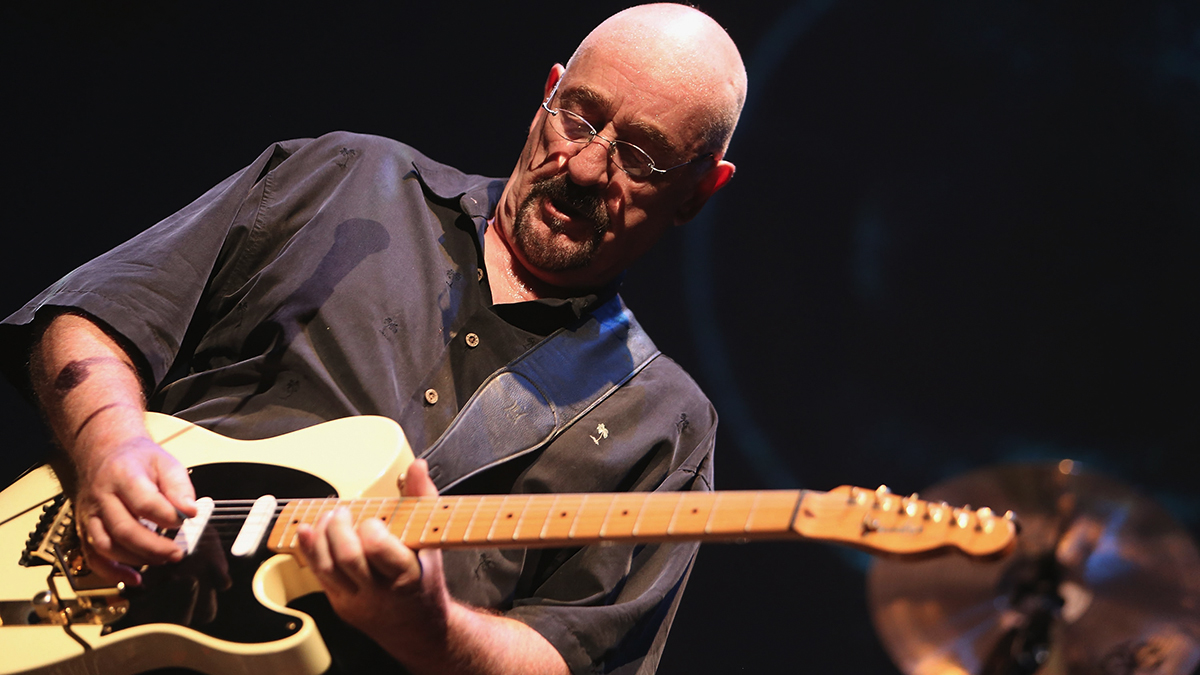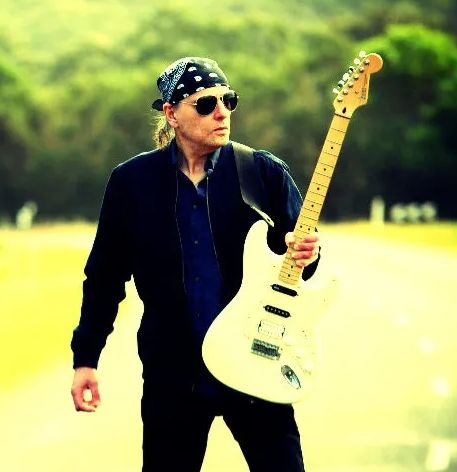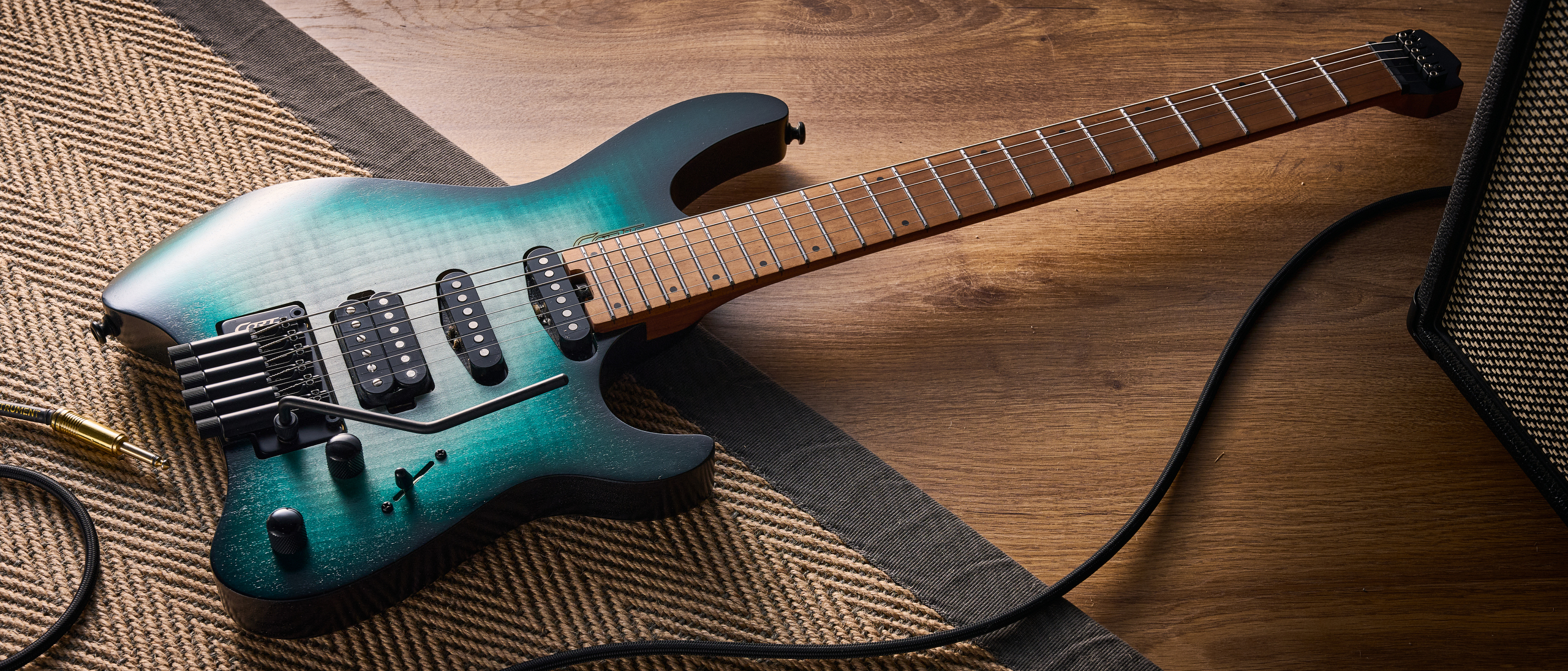“I wish I knew more about what the hell I was doing when I’m playing”: Dave Mason has recorded with Jimi Hendrix and Wings, and inspired George Harrison to play slide guitar – and he’s done it all without “a lot of technique”
The former Traffic guitarist and ace songwriter/sideman discusses his favorite gear, and reveals the one piece of advice he'd give his younger self

All the latest guitar news, interviews, lessons, reviews, deals and more, direct to your inbox!
You are now subscribed
Your newsletter sign-up was successful
You might know Dave Mason from such bands as Traffic, or maybe for one of the many, many sessions he has recorded with the likes of Graham Nash, Wings, and some guy called Jimi Hendrix (it was Mason playing acoustic guitar on All Along the Watchtower). Or you might know him as the George Harrison’s guitar player on the post-Beatles tour-de-force All Things Must Pass, or for his stellar solo career, from which the classic Alone Together has just been reissued.
Mason stopped by GW recently for a quick-fire Q&A, which in short order found him sharing the pain of dehydration on stage and reflecting on the possibility that it was his influence that led to Harrison picking up the guitar slide for the very first time.
Do you remember your first gig?
“I don’t, but most likely it was with my first band – an instrumental outfit called the Jaguars – when I was about 16.”
Ever had an embarrassing moment on stage?
“Yes, about four years ago. I collapsed on stage before the second verse of one of the songs. I was severely dehydrated, and it wasn’t pretty.”
What’s your favorite piece of gear?
All the latest guitar news, interviews, lessons, reviews, deals and more, direct to your inbox!
“I don’t have any one favorite piece of gear; everything I use is a favorite. But my TC Electronic stage rig rates very high. It’s a custom-built preamp and effects unit made by Bob Bradshaw. I run it in stereo through two Fender amps, bypassing their preamp stage.”
Suppose the building is burning down. What one guitar from your collection would you save?
“It would probably be my Strat. It’s always been about a Strat for me, ever since Hank Marvin. The one I play is fairly new; I have two from the Fender Custom Shop.”
What aspect of guitar would you like to be better at?
“Everything! There’s not going to be any lightning blazing speed with me as I don’t have a lot of technique. My hands aren’t that fast. I wish I knew more about what the hell I was doing when I’m playing. I’ve treated guitar more as a melodic instrument than anything, so if I’m noodling around it’s probably mostly going to be some blues stuff.”
Theory has nothing to do with the creative process. You just get to interpret that part of it easier
What advice would you give to your younger self about the guitar if you had the chance?
“To get some lessons from the get-go, and maybe learn to write music. It would have been great because I’m just basically self-taught on the guitar. I can’t read or write music. Some [lessons] from the beginning would’ve been great, but I just keep playing and never stop learning.”
Do you think theory is vital in terms of understanding the guitar?
“Theory has nothing to do with the creative process. You just get to interpret that part of it easier. I’m more concerned with tone than playing 20 million notes. I’d rather play three notes in the right place.”
You played on George Harrison’s All Things Must Pass in 1970. What do you remember about it?
“I was just one of a lot of people there; if you ask me which tunes I played on it, I can’t remember. I just played some acoustic rhythm guitar on a couple of them, and I think I played electric guitar on one, but I’m not sure. I was one of a number of musicians that were invited.
“I knew George more from the Beatles and from hanging out with him, as I sort of knew a little more of him socially than I did musically. He gave me my first sitar; he also played me Sgt. Pepper’s Lonely Hearts Club Band before it came out.”
Do you think George was underrated as a guitar player during his time with the Beatles?
“I think for what they were doing and for that band, he was perfect. Each part was perfect, as attested by their success.”
What can you tell us about another of your Harrison collaborations, If You’ve Got Love from your 1973 album, It’s Like You Never Left?
“He was around and in L.A. at the time, and I obviously would have connected and asked him if he wanted to come and play on the track. He said, 'Sure,' and that’s basically it.”
I sat George Harrison down and said, ‘Here, let me show you something – just learn this lick.’ And it started him off with that whole slide guitar thing
Harrison once said in an interview that he credited you with inspiring him to play slide guitar.
“Yes, I read that same interview. I was playing with Delaney & Bonnie, who had a hit with my song Only You Know and I Know, and we were doing a show at Croydon’s Fairfield Halls. Eric [Clapton] came down and George was with him.
“Eric was going to come up and play, and we were like, ‘George, you’ve got to come up and play too!’ He said, ‘I don’t know any of the songs,’ so I sat him down and said, ‘Here, let me show you something – just learn this lick.’ And it started him off with that whole slide guitar thing.”
- Alone Together Anniversary Edition is out now via Friday Music.
Joe Matera is an Australian guitarist and music journalist who has spent the past two decades interviewing a who's who of the rock and metal world and written for Guitar World, Total Guitar, Rolling Stone, Goldmine, Sound On Sound, Classic Rock, Metal Hammer and many others. He is also a recording and performing musician and solo artist who has toured Europe on a regular basis and released several well-received albums including instrumental guitar rock outings through various European labels. Roxy Music's Phil Manzanera has called him, "... a great guitarist who knows what an electric guitar should sound like and plays a fluid pleasing style of rock." He's the author of Backstage Pass: The Grit and the Glamour.



